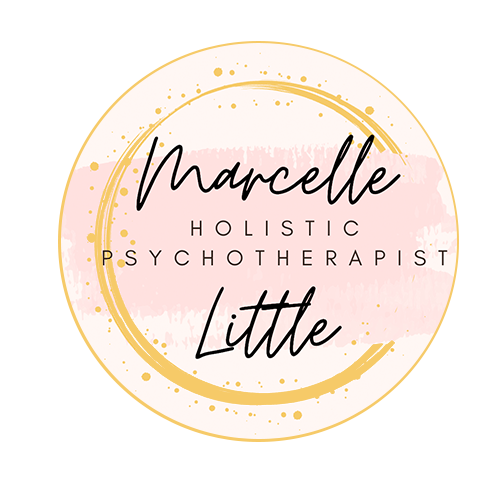EMDR Therapy in the San Francisco Bay Area, Los Angeles, Florida, the UK & Europe
Healing trauma, anxiety, and life transitions through somatic therapy, EMDR, and parts work
As a psychotherapist, I specialize in helping adults navigate anxiety and depression, relationship challenges, life transitions, codependency and people-pleasing, women’s issues, and trauma healing through somatic therapy, EMDR, and parts work.
I work with adults across the San Francisco Bay Area, Los Angeles, Florida, the UK, and parts of Europe, including American expats who are adjusting to life abroad or reconnecting with a sense of belonging and self-trust.
What Is EMDR Therapy?
Eye Movement Desensitization and Reprocessing (EMDR) is a trauma-focused therapy developed in the late 1980s by Francine Shapiro, PhD. She found that side-to-side eye movements reduced the distress of painful thoughts. Today, EMDR is an evidence-based treatment that helps the brain “unstick” memories that were never fully processed, allowing the body and mind to complete the healing process.
EMDR uses bilateral stimulation (eye movements, tapping, or alternating tones) to help both sides of the brain work together to reprocess stored memories, sensations, and beliefs. The brain’s Adaptive Information Processing (AIP) system then stores the experience in a way that feels resolved rather than triggering (Cleveland Clinic, 2022; Frontiers in Human Neuroscience, 2014).
Why More People Are Seeking EMDR Therapy Today
Over the past few years, interest in EMDR therapy has grown rapidly — especially among adults who want to go beyond talk therapy to address the deeper roots of anxiety, burnout, and relational patterns.
Recent trends driving this growth include:
Post-pandemic stress and chronic anxiety – After years of uncertainty, many people report lingering hypervigilance, insomnia, and emotional fatigue. EMDR helps regulate the nervous system and restore a sense of safety.
Work burnout and tech fatigue – In fast-paced areas like the Bay Area and Los Angeles, constant connectivity and performance pressure create cycles of stress that EMDR helps unwind.
Relationship and attachment awareness – More people are recognizing patterns of emotional avoidance, over-giving, or fear of intimacy. EMDR addresses the early memories and beliefs beneath these patterns.
Intergenerational and childhood trauma – Adults are realizing how family dynamics or unprocessed childhood experiences still shape their current emotional responses and relationships.
Parenthood and reparenting – Many new or expecting parents seek EMDR to heal before or while raising children, noticing old triggers resurfacing as they want to parent differently.
High-achiever exhaustion – Professionals in tech, medicine, or finance often seek EMDR after traditional therapy hasn’t fully shifted feelings of pressure, perfectionism, or self-criticism.
American expats abroad – For U.S. citizens living in the UK or Europe, EMDR offers a way to manage the unique stress of relocation, culture shock, or disconnection from familiar support systems.
In the San Francisco Bay Area, EMDR is resonating with adults who are striving to balance emotional well-being with a demanding lifestyle. It helps them process stress on a nervous-system level — not just cognitively — which is key to long-term healing.
How EMDR Works in My Practice
In sessions, we start by identifying memories, beliefs, or body sensations that feel stuck. Once you feel ready and grounded, we begin the bilateral stimulation phase using a virtual bilateral ball that moves left to right across your computer screen.
You simply follow the ball with your eyes while noticing what comes up. This back-and-forth movement helps both sides of your brain integrate the experience, much like what naturally happens during REM sleep. Over time, the distress around those memories fades, and new beliefs begin to take root — for example:
“I am safe now.” “It's okay to rest.” “I can trust myself.”
Clients often describe feeling lighter, calmer, and more connected to themselves after EMDR sessions.
Processing vs. Reprocessing — A Simple Explanation
In talk therapy, processing means understanding what happened through insight.
In EMDR, reprocessing means your brain actually finishes the incomplete stress response that got stuck during the original event.
Think of a painful memory like a file that never closed. EMDR helps your brain “save” the file properly, so it stops reopening every time something reminds you of it. The memory remains, but the emotional charge is gone.
EMDR for Modern Life and Emotional Reset
Whether you’re navigating a demanding job in the Bay Area, balancing relationships, parenting, or starting a new life abroad, EMDR offers a way to move beyond survival mode and reconnect with your authentic self.
I provide online EMDR therapy across California, Florida, the UK, and Europe, creating a safe space for adults to heal trauma, calm anxiety, and transform old relational patterns into inner stability and peace.
I’m Marcelle Little, a California and Florida-licensed psychotherapist (LMFT #129593, TPMF1241) and UK-registered practitioner offering online therapy for adults in California, Florida, and select European countries. My work integrates EMDR, somatic therapy, parts work, and depth psychology to help individuals heal trauma, anxiety, and intergenerational wounds.
Specialties:
Adjustment Disorder & Life Transitions Therapy
Expat and Relocation Support (UK, Spain, and other parts of Europe)
Somatic and Trauma-Informed Therapy
Mindfulness and Holistic Integration
US & UK Licensed Psychotherapist (Online Therapy for CA, FL, UK, EU Residents)

